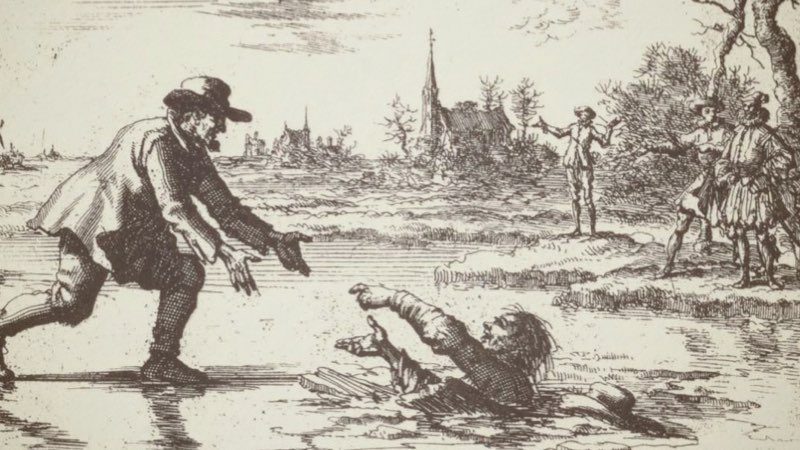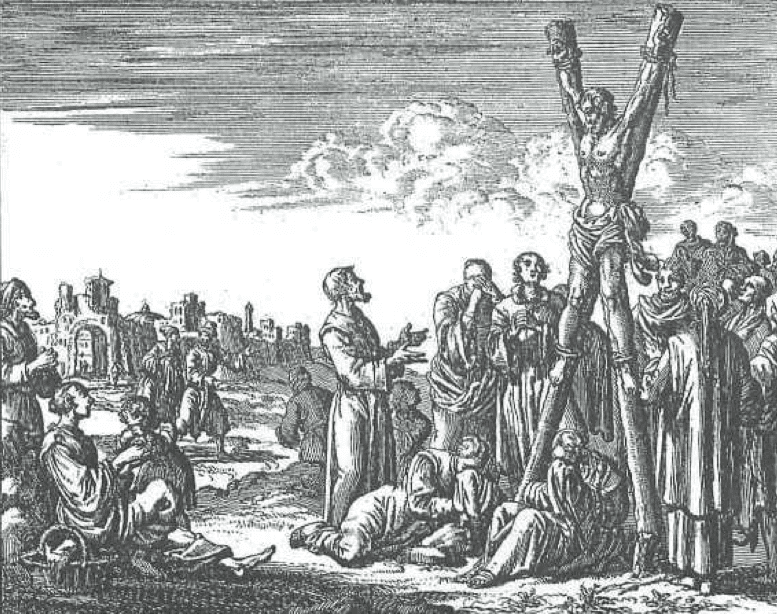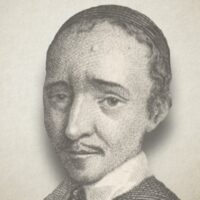
37. The Apostle Andrew
The Apostle Andrew Crucified at Patros in Achaia, around the year 70
Andrew, The Holy Apostle, Crucified At Patras, In Achaia, About A.D. 70
Andrew, the son of Jona, and brother of Peter, was a native of Bethsaida in Galilee. He was first a disciple of John the Baptist, and since he was older than Peter, and knew Christ first, he brought his brother to Christ as to the true Messiah. Being also a fisherman, like Peter, the Lord called him, and promised to make him a fisher of men. John 1:44,40,42; Matt. 4:18,19.
And because he zealously followed the Lord, and was instructed in the evangelical doctrine, so that he was worthy to be filled with the spirit of miracles, the Lord ordained him as one of His twelve apostles; in which ministry he, with the others, faithfully labored among the Jews. Matt. 10:2; Mark 6:7.
He was held in no small esteem by the Lord; for he had, as it appears, a freer access to Him, than Philip himself. Compare John 1:40 with verses 42,43.
Further, although he fell through weakness, like all the other apostles, in forsaking his Master; yet he recovered from his fall, and again joined himself to Christ and to his fellow brethren. Matt. 26:31; Luke 24:33.
Afterwards he with all his fellow ministers received command to preach the Gospel in the whole world, and to all nations; to which end he was endued, on the day of Pentecost, with the Holy Ghost, whom he received in all fullness. Matt. 28:19.
Going out, in obedience to the command of Christ, he taught in many countries, as in Pontus, Galatia, Bethynia, as well as at Antropophages, and afterwards in Scythia. He also traveled in the northern and the southern countries, yea, as far as into Byzantium; further, in Thracia, Macedonia, Thessalia, and Achaia, everywhere preaching Christ; whereby he converted many to the Christian faith.
He also confirmed the doctrine of his Master with many miracles, according to the words of the Lord: “These signs shall follow them,” etc. But since other authors do not treat accurately of this, we shall omit the particulars of these signs. Abdias, van den strijd der Apostelen.
Finally, when he had finished his course, according to the will of the eternal God, Aegaeas, the governor of Edessa, in the name of the Roman senate, caused him to be crucified in the city of Patras, in Achaia. Joh. Gys. His. Mart., jol. 10, col. 1, 2, from Sophronis and Aug. Solilo., cap. 2.
Concerning the cause and manner of his death, the following is contained in Apophthegm. Christian. Baudart., page 3: At Patras, a city in Achaia, he converted besides many others, Maximillia, the wife of Aegaeas, the governor, to the Christian faith. This so enraged the governor against Andrew, that he threatened him with death of the cross. But the apostle said to the governor: “Had I feared the death of the cross, I should not have preached the majesty and gloriousness of the cross of Christ.”
The enemies of the truth having apprehended and sentenced to death the apostle Andrew, he went joyfully to the place where he was to be crucified, and, having come near the cross, he said, “O beloved cross! I have greatly longed for thee. I rejoice to see thee erected here. I come to thee with a peaceful conscience and with cheerfulness, desiring that I, who am a disciple of Him who hung on the cross, may also be crucified.” The apostle said further, “The nearer I come to the cross, the nearer I come to God; and the farther I am from the cross, the farther I remain from God.”
The holy apostle hung three days on the cross; he was not silent, however; but as long as he could move his tongue, he instructed the people that stood by the cross, in the way of the truth, saying, among other things: “I thank my Lord Jesus Christ, that He, having used me for a time as an ambassador, now permits me to have this body, that I, through a good confession, may obtain everlasting grace and mercy. Remain steadfast in the word and doctrine which you have received, instructing one another, that you may dwell with God in eternity, and receive the fruit of His promises.”
The Christians and other pious people besought the governor to give Andrew unto them, and take him down from the cross. (For it appears that he was not nailed to the cross, like Christ, but tied to it). When the apostle learned of this, he cried to God, saying, “O Lord Jesus Christ! suffer not that Thy servant, who hangs here on the tree for Thy name’s sake, be released, to dwell again among men; but receive me. O my Lord, my God! Whom I have known, whom I loved, to whom I cling, whom I desire to see, and in whom I am what I am.” Having spoken these words, the holy apostle committed his spirit into the hands of his heavenly Father. M. W. Baudart in Apophthegm Christian, lib. 1, super Andream, ex August, de Vera et Falsa Poenitentia., cap 8, Bernhard. in Sermon, de Andrea. Lanfrancus contra Berengar. Niccph., lib. 2, cap. 39, and lib. 15, cap. 39. Remigius in Psal. 21 and 40. Johan. Strat. in Festo Andreae, p. 23, haec et alia. Also, Konst-tooneel van veertig, by N. D. C, Concerning the Life of Andrew.
Thieleman J. Van Braght (1625-1664) was an Anabaptist who is best known for writing a history of the Christian witness throughout the centuries entitled “The Bloody Theater or Martyrs Mirror of the Defenseless Christians who baptized only upon confession of faith, and who suffered and died for the testimony of Jesus, their Saviour, from the time of Christ to the year A.D. 1660” (1660).
Thieleman J. Van Braght, Martyrs Mirror




